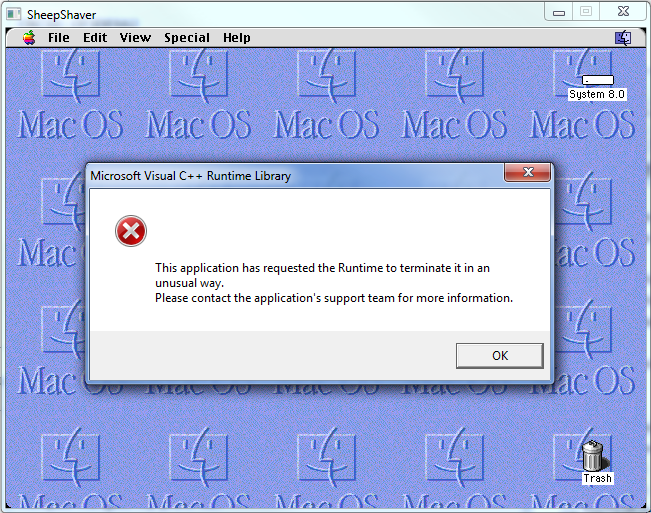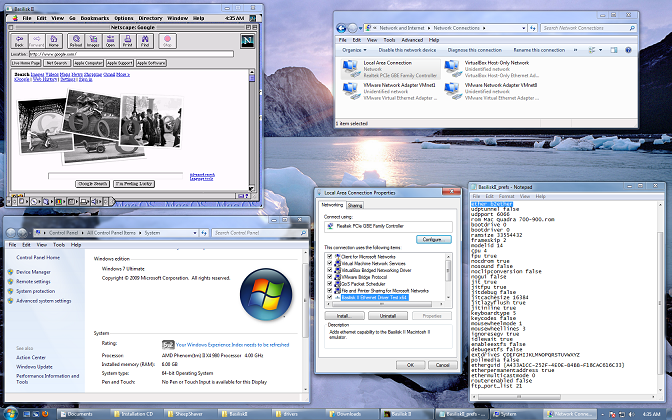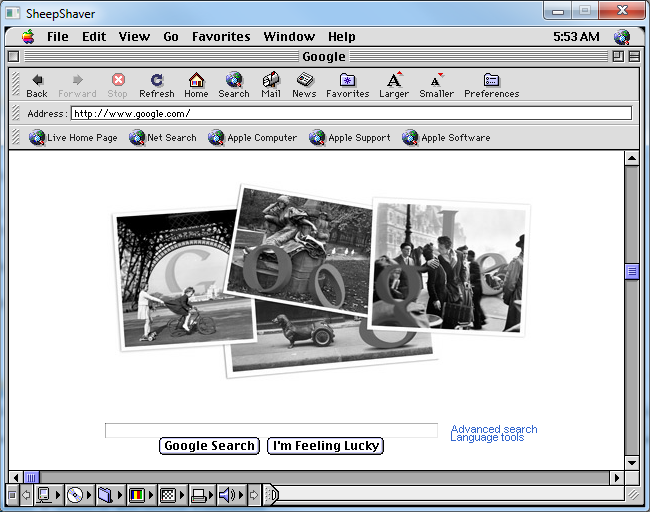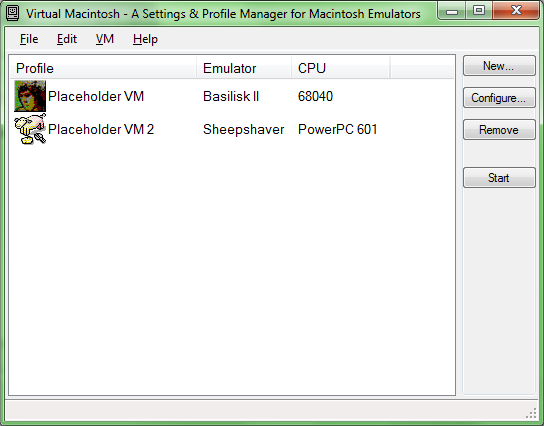So.. firstly, sorry if there have been posts covering this that I missed.
Long time browser(only now and again, though), registered to finally post
I tried searching, but that didn't really work. I skimmed
the forums somewhat but didn't really find anything.
As for the searching not working.. it seems like all
the kinds of key words I wanted to use were ignored.
Like: how, to, help, build, 64, Sheepshaver, Basilisk II.
Compile, does work, but because of other ignored words,
it ends up being like just searching "compile", all by itself.
Anyway, I did find through google, a guide on setting up a
build environment for sheepshaver and basilisk II, but
I haven't got everything ready yet to it(I am working on
a development VM, so I can have the same *portable*
work environment on both my desktop and laptop).
Also the build instructions didn't mention anything about
compiling for x64, which thats one of the first things
I wanted to try to do was get cdenable.sys and the
network protocol to build for Windows 7 x64.
I haven't done any programming in a while, so I'm a bit
fuzzy, and I need more experience anyway. I previously
did mostly php with xhtml, bit of css, and some sql;
Though I did take classes for and mess around with
Visual Basic .NET, as well as Visual C++ and Java.
I want to sharpen my mind and programming skills,
and have messed around with Basilisk II and Sheepshaver
a fair bit in the past. Always had little ideas for this and
that. And I thought, what better than to start working
with an open source project, right?
No idea what really might come of it. And I have
alot of things I'm sure I'll need to learn. But if
anyone would like to give me some help or
advice, I'd be very appreciative!
I have had several ideas for features, in addition
to the aforementioned try to compile cdenable.sys
and the ethernet protocol for x64. Like having
the ability to mount iso images on the fly, and
having a GUI built in similiar to Virtualbox, VMware,
and Virtual PC, that lets you create multiple profiles,
edit settings, select drives/images/etc to mount.
I even thought it might be interesting to combine
Basilisk II and Sheepshaver under one GUI, so you'd
basically have 68k profiles and PPC profiles. The
Emulators themself would still be separate essentially,
but both would be accessible from one GUI, and maybe
even if possible from one executable?
Something else is the lack of an MMU in Sheepshaver,
one idea there is PearPC has an MMU right? Wonder if
it can be imported into Sheepshaver...?
I might be getting too ambitious with all this, especially
since I'm so fuzzy with my skills at the moment. Well,
I have to start somewhere... I figure first that's
just trying to build it from source right? Of course one
big question in that, is, how to build for Windows 64-bit
in addition to 32-bit?
From the instructions I've found it seems to involve
Cygwin, which I only have a passing knowledge of it;
but not really, any practical knowledge of it.
From my understanding its basically doing for Windows,
what Wine does for Linux; IE it is a Linux/Unix API and
compatibility layer for applications to use for running
within Windows.
No idea how that would affect attempts to compile
targeting x64 platforms.
Is it possible to compile it any other way?
So far this is all I've really found, and I'm going to test it after
my VM for a development environment is completed. Right now
I'm doing a bunch of reading.
Compiling BasiliskII and SheepShaver for various host environments
http://www.emaculation.com/doku.php/com ... r_basilisk
Porting Your Driver to 64-Bit Windows
http://msdn.microsoft.com/en-us/library ... 85%29.aspx
Getting Ready for 64-bit Windows
http://msdn.microsoft.com/en-us/library ... 85%29.aspx
Though I suppose either way, I should first work
on being able to compile it at all for a starting point.
So I guess I need to begin with any information on compiling
or links or tips would be great. Thank you
P.S. Hope that you were able to understand my post



